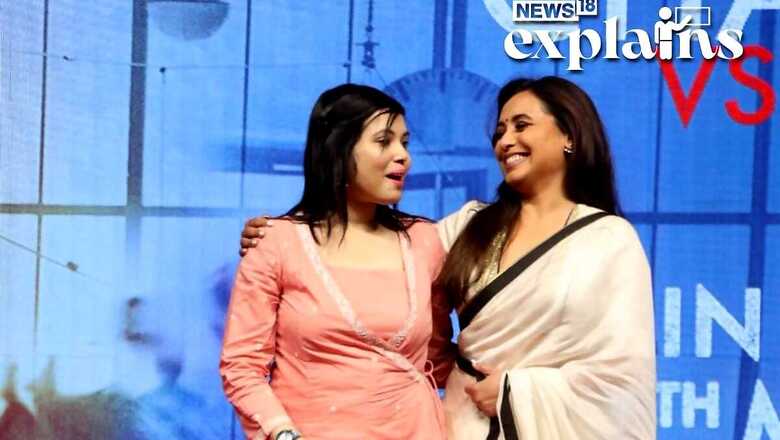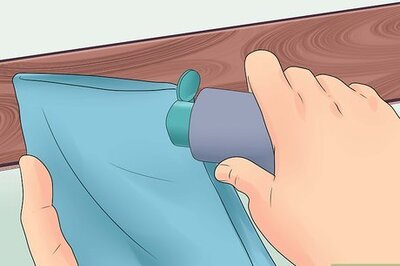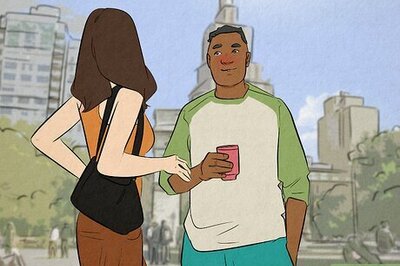
views
The role of Rani Mukerji in ‘Mrs. Chatterjee Vs. Norway,’ which depicts a woman’s tenacity, was inspired by the real-life events of Sagarika Bhattacharya, who faced difficulties after her children were taken away from her.
Sagarika had earlier said that watching the trailer was like reliving her battle.
Sharing her thoughts on the trailer, Sagarika said: “It’s hard to put into words how it feels seeing my story being told. Watching the trailer, I felt like I was reliving my battle. I believe it is important for people to know this story and to see how immigrant mothers/parents are treated even today, as is evident from the tragic story in Germany.”
So What Was Sagarika’s Story? News18 Explains:
Anurup Bhattacharya, a geophysicist by profession, married Sagarika in 2007 and relocated to Norway. When Sagarika became pregnant with her first child, she returned to Kolkata. According to reports, her son Abhigyan began exhibiting Autism-like signs when she was in India. In 2009, the mother-son duo returned to Norway, as per a report by ABP News.
When Sagarika became pregnant with her second child in 2010, she and Anurup enrolled Abhigyan in kindergarten in Norway. Throughout her pregnancy, Abhigyan began to exhibit serious behavioural changes, such as slamming his head on the ground whenever he was agitated.
Sagarika was largely responsible for herself and her son because her husband worked long hours.
Norway is noted for having a very stringent child protection system in place, as well as a long history of contentious cases, because it enforces strict standards regardless of cultural variations among its population. If the so-called observational tests fail, the parent may lose custody of the child, the report explains.
In November 2010, a Child Welfare Service (CWS) team from Norway arrived at Sagarika’s residence after receiving ‘alerts’ concerning Abhigyan and his connection with his mother, Sagarika. But, after discovering Sagarika was pregnant, the crew left without taking any action. Sagarika gave birth to her daughter, Aishwarya, the following month.
In the meantime, Abhgiyan’s symptoms worsened. When he saw her sister being breastfed, he would become enraged. Sagarika was finding it difficult to manage the issue on her alone.
The kindergarten where Sagarika’s children were enrolled began receiving CWS notifications. She was requested to sit for Marte Meo counselling for being “disorganised, unpunctual, lacking in structure and unable to establish a proper daily routine for herself or her family”. The parents, on the other hand, claimed that the social worker assigned to their case was disrespectful, impolite, and meddling.
Authorities took the couple’s children into foster care in May 2011 under the guise of poor parenting.
They objected to Sagarika hand-feeding the baby, comparing it to forced feeding. They also had issues with children sharing a bed with their parents, which is fairly prevalent in Indian households. They also charged Sagarika with slapping her toddler, as well as the children not having enough room to play in the house and having “unsuitable” clothes and toys.
The pair requested that the Foreign Ministry intervene in the matter. The Indian government had harshly criticised Norway’s Child Welfare Service for removing children from their parents.
Following a diplomatic squabble between India and Norway, Norwegian officials decided to provide custody to their father’s brother and permission to return them to India.
Anurup and Sagarika’s marriage fell apart during the long battle for their children, and they divorced. Sagarika’s court battle for sole custody of her children resumed, but this time in India. She then claimed that her husband and in-laws wrongly accused her of being mentally ill and incapable to care for her two children.
In January 2013, the Calcutta High Court granted her custody of her children.
About Norway Protection Child Services
In Norway, Child Welfare, often known as Barnevernet, is a public organisation in charge of child protection. The body is highly severe when it comes to kid protection and sets stringent laws on all citizens living in the country.
Norway has long been proud of the resources it invests to child protection. It was the first country in the world to establish a children’s ombudsman, an independent authority charged with protecting children’s rights, in 1981. The concept has subsequently spread throughout Europe and beyond, explains a report by BBC.
Barnevernet, the child protection service, emphasises that when it suspects that something is amiss in a home, it does not take the children away. It collaborates with parents to solve problems and keep families together. Nonetheless, the number of children and adolescents admitted to emergency rooms more than doubled between 2008 and 2013.
This was partly in response to widespread outrage in 2005 over the death of an eight-year-old boy, Kristoffer, who was battered to death by his stepfather, says the BBC report. Yet, most cases now do not involve parental violence or alcohol or drug misuse. The commonest grounds for a care order now is simply “lack of parenting abilities”.
Many people have long criticised the Norwegian Child Welfare Services (Barnevernet) for making contentious judgements, particularly against migrant families, says a report by Anadolu Agency. Since 2015, Barnevernet’s procedures, which mostly involve removing children from their homes under the guise of “abuse,” have been heavily criticised both inside and outside of the country.
Absence of relevant evaluations and ignoring the cultural variations while deciding on cases of “kid removal” are among the key reasons behind the critiques. The European Court of Human Rights (ECHR) ruled on September 10, 2019, that Norway infringed the right to respect for private and family life provided by Article 8 of the European Convention on Human Rights.
Read all the Latest Explainers here

















Comments
0 comment